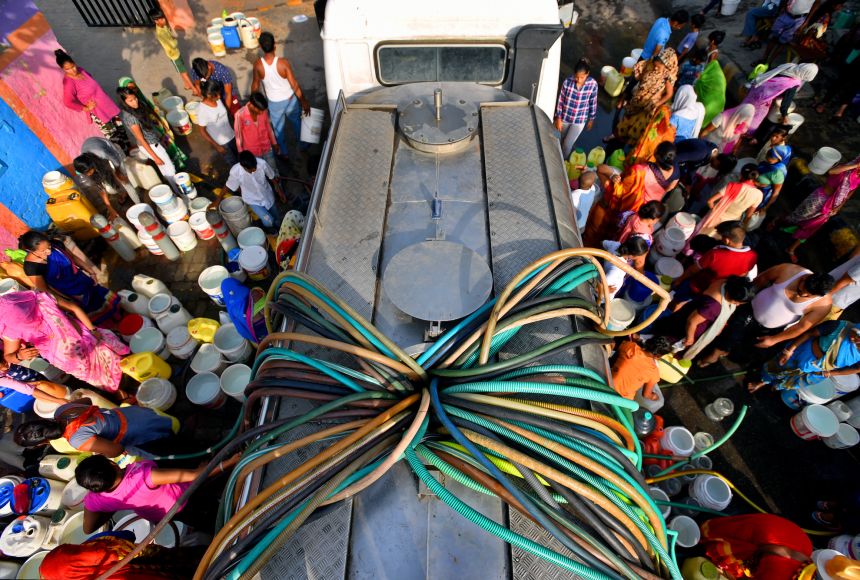ENCYCLOPEDIC ENTRY
ENCYCLOPEDIC ENTRY
Scarcity
Scarcity
One of the defining features of economics is scarcity, which deals with how people satisfy unlimited wants and needs with limited resources. Scarcity affects the monetary value people place on goods and services and how governments and private firms decide to distribute resources.
Grades
5 - 8
Subjects
Conservation, Earth Science, Social Studies
Image
Water Truck in India.
Getting clean potable water in the hotter months of the year is a challenge for many New Delhi residents as the population grows and the clean water supply shrinks. Water trucks arrive to tens or even hundreds of people waiting for their daily supply of c
Photograph by Hindustan Times

Media Credits
The audio, illustrations, photos, and videos are credited beneath the media asset, except for promotional images, which generally link to another page that contains the media credit. The Rights Holder for media is the person or group credited.
Director
Author
Production Manager
Program Specialists
Specialist, Content Production
Producer
other
Last Updated
October 19, 2023
For information on user permissions, please read our Terms of Service. If you have questions about how to cite anything on our website in your project or classroom presentation, please contact your teacher. They will best know the preferred format. When you reach out to them, you will need the page title, URL, and the date you accessed the resource.
Media
If a media asset is downloadable, a download button appears in the corner of the media viewer. If no button appears, you cannot download or save the media.
Text
Text on this page is printable and can be used according to our Terms of Service.
Interactives
Any interactives on this page can only be played while you are visiting our website. You cannot download interactives.